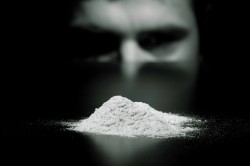Signs Your Loved One Needs Cocaine Addiction Help
There are an estimated 1.4 million cocaine users in America and even when faced with desperate consequences from their use, many will be unable to quit without cocaine addiction help.
Cocaine Addiction
Cocaine usually comes in the form of a white powder which can be snorted or diluted and injected. Some people smoke cocaine through methods of “free basing” or mixing it with other variants to form a solid crystal-like substance known as “crack”.
Cocaine addiction is characterized by uncontrollable cravings and compulsive use of cocaine despite the negative consequences that may occur. According to the Center for Substance Abuse Research, “crack cocaine is the most potent form in which the drug has ever appeared.” and a person can become addicted after their first time trying it.
Signs of Cocaine Abuse

If your loved one has a preoccupation with cocaine and can’t quit alone they may need cocaine rehab help.
There is a fine line between cocaine abuse and cocaine addiction. A person may be an occasional user one day, and an addict the next. Cocaine is a powerful stimulant drug and once the person starts using it, the cravings are not easily turned off. The person risks many physical and psychological health risks including organ damage, neurological problems, overdose, and death.
Signs of cocaine abuse may include:
- Dilated Pupils
- Frequent nose bleeds or sinus congestions
- Runny noses
- Track marks from injecting
- Burns on lips or fingers from smoking
- Fast heart rate
- Euphoria
- Overly confident
- Paranoia
- Anxiety
- Nervousness
- Talkative
- Hyperactive
- Changes in sleeping patterns
Signs Your Loved One Needs Cocaine Addiction Help
Cocaine users tend to shield themselves through various psychological defense mechanisms to protect and reinforce their cocaine use. Attitudes and behaviors can become highly negative and your loved one may do things you never thought they were capable of. Changing these behavioral symptoms is the main focus of cocaine addiction treatment to keep the person from continuing to use the drug.
Psychological and behavioral symptoms may include:
- Refusing to acknowledge the problem, minimizing the severity, or rationalizing the use.
- Blaming others or projecting negative emotions on others.
- Uncontrollable mood swings and frequent bouts of anxiety, restlessness, depression, aggression, irritation, lack of patience, and exhaustion.
- Unable to manage stressful situations with good judgment and inability to focus or keep things organized.
- Changes in social behaviors such as frequent disappearances to use more cocaine, withdrawing from family or friends to hide the abuse, or changing groups of friends to gain more access to the drug.
- Losing interest in work, family, school, or important or once enjoyable events.
- Lack of regard for appearance or health.





